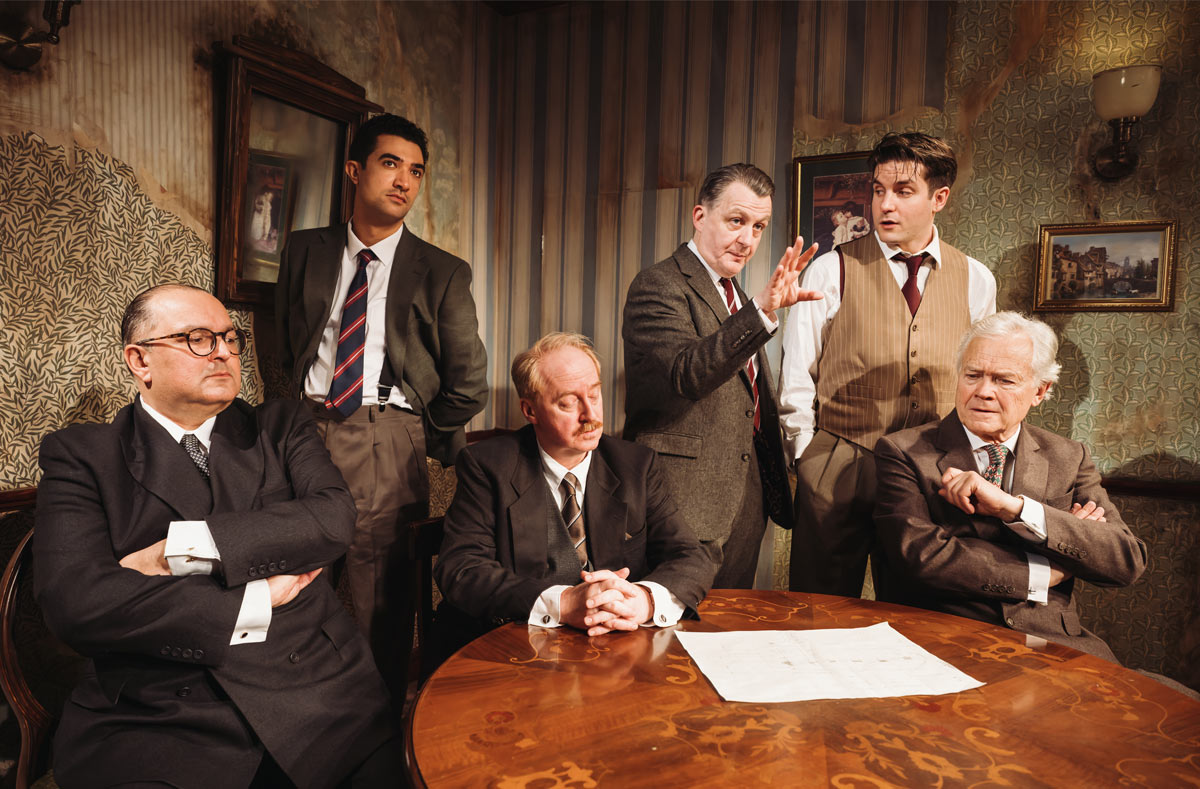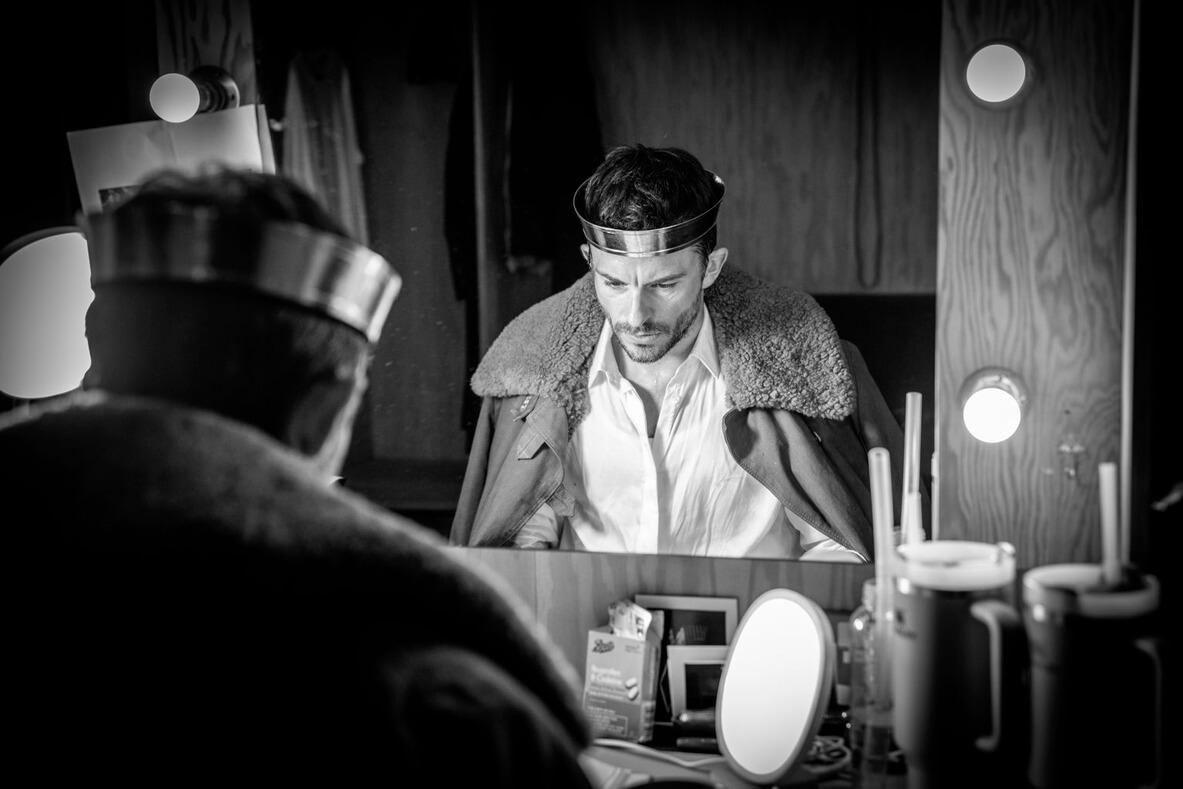With little initial sign of external turmoil in Katherine Moar’s Second World War drama of manners and words, the men of a different era hark back to the purity of their theoretical studies and bicker over whose achievements were tainted by membership of the Nazi Party and specifically its funding of their research laboratories. The first half in particular, affords the audience an opportunity to familiarise itself with the established and notable personalities of Hahn (Forbes Masson), Von Laue (David Yelland), Heisenberg (Alan Cox) and the disliked and oft-excluded Diebner (Julius D’Silva). Together they have laid the foundations for the acknowledged upcoming geniuses of the piece — the privileged Weizsäcker (Daniel Boyd) and considerably less affluent Bagge (Archie Backhouse). Each justify their reasons for joining the party or openly criticising it, and it is through their exchanges that we chew over and dissect the rights, wrongs and impacts of the pressure brought to bear on each member of the group during the days of The Third Reich.
The key question is clearly made: Knowing that the creation of an atomic bomb could be the potential result of their studies, should they have refused, delayed or sabotaged the German research, or continued in the name of science and the Fatherland (albeit that each thought The Führer was an unstable lunatic)? The men are a hotch-potch of mutually respecting — if not necessarily mutually liking academics, who speak of women in terms of their hair and eye colour and of each other as competitors rather than colleagues working towards a common end goal.
For all the seriousness and potential dryness of the largely academic and philosophical chit-chat, there is a great deal of humour and humanity wrung from the text by this experienced and measured cast. Julius D’Silva especially delivers his wronged and misrepresented outcast with a stylish stiffness which is at once proudly hilarious whilst also coldly intimidating.
Directed by Stephen Unwin, there is a real sense that the play possesses distinctly uneven first and second halves. The high-brow goading and frivolous squabbles (one involving a breakdown of the chemical process for making Champagne), give way after the interval to more ponderous and meandering efforts to encapsulate the emotional response to the radio announcement that the Americans have not only successfully created an atomic bomb, but have used it on Japan. Heisenberg’s final speech attempts to convey reflection and consideration of the events which have overtaken the world, but falls decidedly flat and fails to adding anything of note.

 Julius D'Silva, Archie Backhouse, Forbes Masson, Alan Cox, Daniel Boyd, David Yelland in Farm Hall - Photo credit Alex Brenner
Julius D'Silva, Archie Backhouse, Forbes Masson, Alan Cox, Daniel Boyd, David Yelland in Farm Hall - Photo credit Alex Brenner

